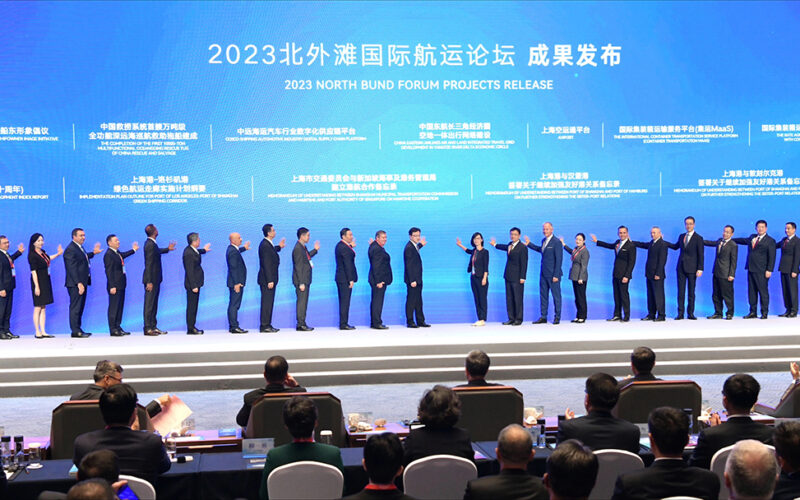Ports of Los Angeles, Long Beach and Shanghai outline green shipping corridor plan
Time:2023-09-26 09:48:25View:1132
The Ports of Los Angeles, Long Beach, and Shanghai have issued an outline of a Green Shipping Corridor Implementation Plan to accelerate emissions reductions across the Pacific Ocean.

The three ports deem this proposal as a significant step towards decarbonising the global supply networks that power our economy and moving to zero-carbon-emission ships.
It intends to highlight cutting-edge goods movement technology, decarbonisation applications, and best management practises to improve efficiency.
As part of the historic agreement, the carrier partners will begin deploying reduced lifetime carbon capable ships in the corridor by 2025, and will collaborate to demonstrate the possibility of deploying the world’s first zero lifecycle carbon emission containerships by 2030.
CMA CGM, COSCO Shipping Lines Co., Ltd., Maersk, and ONE are among the carrier partners. Shanghai International Port (Group) Co., Ltd., the China Classification Society, and the Asia Maritime Technology Cooperation Centre are among the key partners.
Gene Seroka, Executive Director of the Port of Los Angeles, said: “This trans-Pacific green corridor will be a model for the global cooperation needed to accelerate change throughout the maritime industry. Reducing emissions in this corridor will yield substantial reductions.
“For perspective, most of the emissions associated with moving cargo by ship occur in the mid-ocean part of the journey between ports. This corridor will help reduce mid-ocean emissions while continuing the work we have done to cut emissions within our ports.”
Mario Cordero, Chief Executive Officer of the Port of Long Beach, stated: “This initiative will drive emissions reductions across the world’s largest ocean and lead to greener practices from supply chain participants along these vital trade routes.
“The new and innovative vessel technologies, increased availability of sustainable fuels and better practices created through this green corridor will also impact society’s transition to a cleaner future far beyond the areas served by our ports.”
Mark Watts, Executive Director of C40, said: “C40 is proud to support this first-of-its-kind green shipping corridor aimed at demonstrating that zero-carbon shipping at scale is feasible by 2030, and that less polluting ships and ports will also mean cleaner air, less noise and more jobs for local communities.”
From January to April 2023, China’s ports saw an increase in container volume reaching 95.4 million TEU.

